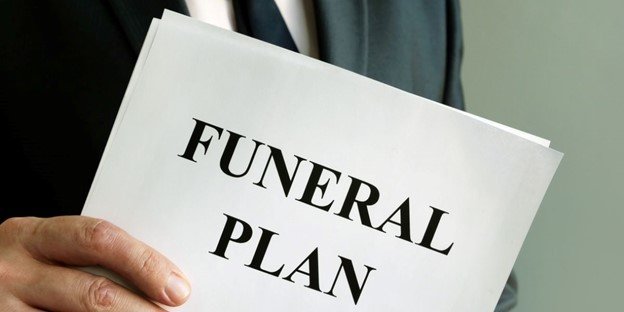Prepaid Funeral Plans: Pros and Cons
Planning ahead is a smart move for important events in life. Whether it's saving for college, a wedding, or buying a home, we're used to putting money aside for big moments. And one of those moments we often overlook is planning for our funeral.
More people are choosing to plan their funerals ahead of time to reduce stress for their loved ones. Planning ahead can help ensure that all arrangements are in place and that the wishes of the deceased are carried out. This proactive approach can provide the opportunity for peace of mind for both the individual and their family. When you plan your own funeral, it can also save money because you get to decide what kind of service you want and lock in today's prices.
But not all pre-paid funeral plans are a good deal, and the rules about them can be different depending on where you live. Let's take a closer look at the pros and cons—what's helpful, what's not, and what questions you need to ask to make sure you find the right plan for you.
Final Expense Insurance vs Prepaid Funeral Plans
Planning and prepaying for your funeral or cremation in advance can be costly, but it can also alleviate your family's concerns.
A prepaid funeral plan lets you plan your funeral or cremation. You can choose the products and services you want and specify all the details. Then, you can make payments over time in installments that fit your budget.
It is important to understand the different types of prepaid funeral plans. This will help you determine the best option for you and your family.
Types of Prepaid Funeral Plans
With a prepaid funeral plan, you can customize every aspect of your service. You can choose even the smallest details. You can also lock in today's prices for many expenses.
Once you've decided whether you want to be buried or cremated, what kind of casket or urn you prefer, whether you want a traditional service or a celebration of life, and you sign a contract, your money is put aside with a third party. Here are places your monthly payments can go that are generally considered safe:
Pre-Need Insurance Policy: You pay premiums for a certain period, usually three to ten years. As long as your payments are up to date, the policy stays in effect, and the benefit is paid directly to the funeral home.
Revocable Trust: The money for your funeral expenses is put into a trust with a trustee or beneficiary that you can change. You can cash out or cancel the trust whenever you want, and the benefit is paid directly to the funeral home.
Irrevocable Trust: The money for your funeral expenses is put into a trust that cannot be canceled. This trust has no cash value, and the money cannot be taken out. Families usually make a trust irrevocable only if it's required by their state for Medicare or Medicaid assistance. The benefit is paid directly to the funeral home.
What's Included in a Prepaid Funeral Plan?
When you're planning a funeral or memorial service, there are a lot of details to think about and choices to make. Just like any funeral or cremation, a prepaid plan can be tailored specifically for you.
When you meet with a planning professional, they will first get to know you. This includes your cultural and religious traditions, family customs, and how you want to be remembered. Then they'll explain all your options, including the goods and services usually included in a funeral or cremation, as well as special items like keepsakes, remembrance jewelry, cemetery or cremation property, or even burial in an underwater reef.
Here are the things that prepaid funeral plans usually cover:
Services of a Funeral Director and Funeral Home Staff
Transportation and Care of the Loved One
Casket or Cremation Container
Venue and/or Reception: Many funeral homes have chapels and reception areas. Some even offer outdoor spaces for gatherings.
Catering
Transportation to the Cemetery: A hearse and transportation for the family may be needed.
Burial Vault
Other Items: Flowers, stationery, decor, keepsakes, and mementos for family and friends may also be included in prepaid costs.
Prepaid plans may not cover:
Goods and services provided by third parties. When speaking with your pre-planning advisor, be sure to inquire about common third-party costs. You should also ask if you can set aside funds in your plan to cover expenses like:
Death certificate copies
Cremation permits
Fees for clergy or celebrants
Police escort fees
Musicians
Grave opening and closing costs or other cemetery goods and services, like a grave marker or monument.
Many funeral homes and cemeteries are sister locations, allowing you to arrange everything in one place and include both funeral home and cemetery costs in a single prepaid plan. However, not every funeral home operates this way, and cemetery expenses may need separate planning.
Bottom Line
Pre-paying for funeral services is a responsible and compassionate decision that benefits both you and your loved ones. By taking care of the arrangements in advance, you ensure that your final wishes are honored, and your family is spared from unnecessary financial and emotional burdens. So, don't shy away from discussing and planning your funeral. Embrace it as an essential part of your end-of-life planning and give yourself and your family the the opportunity for peace of mind.
Sources:
https://www.dignitymemorial.com/pre-planning/funeral-costs/types-of-prepaid-funeral-plans





